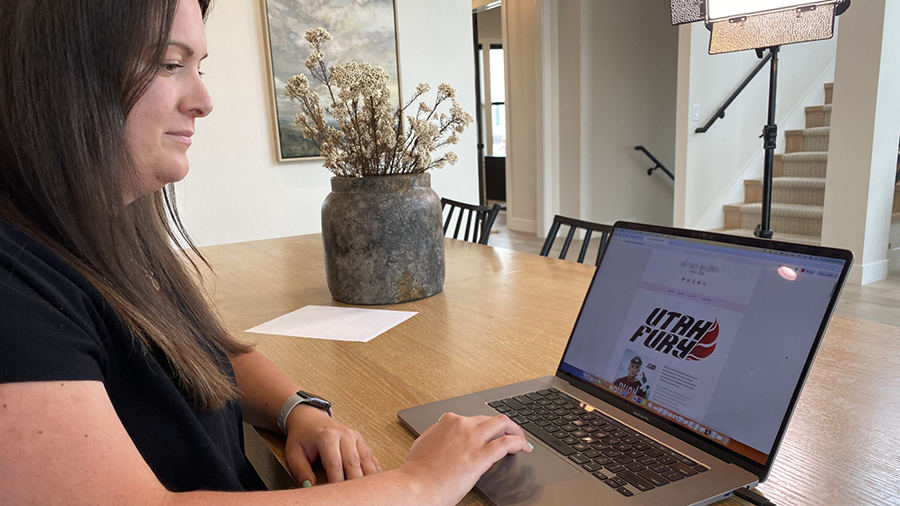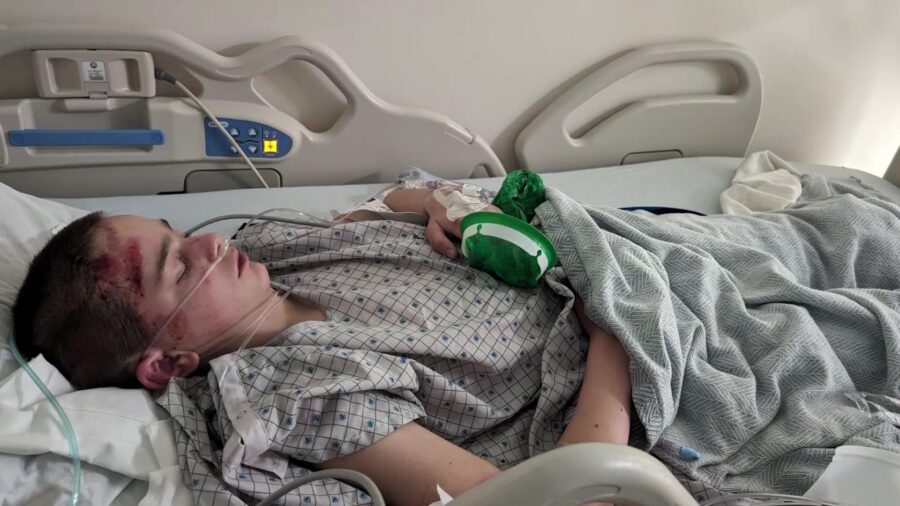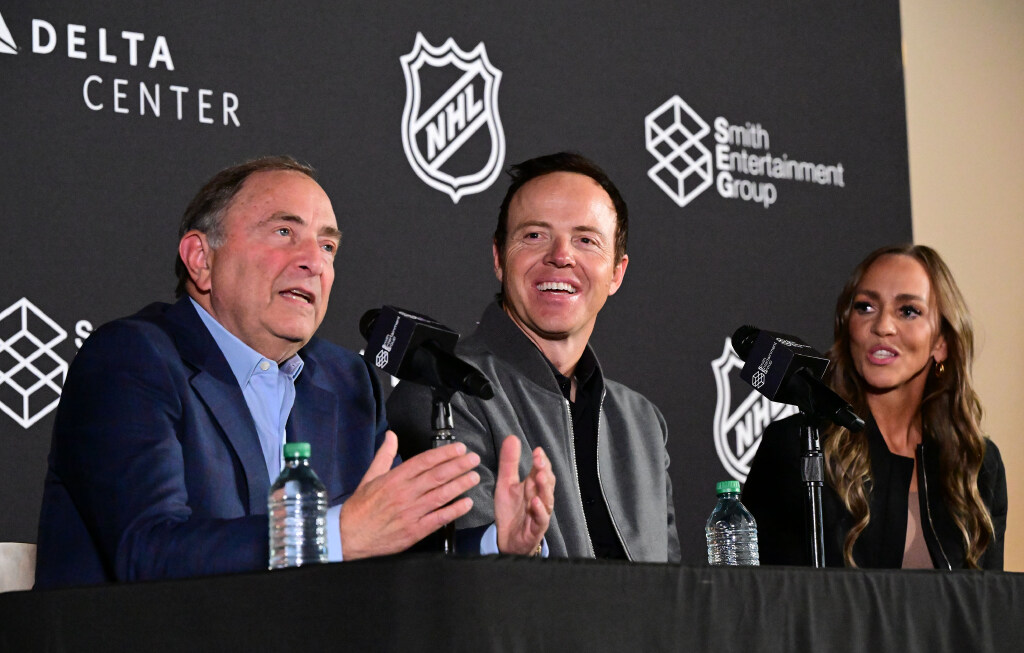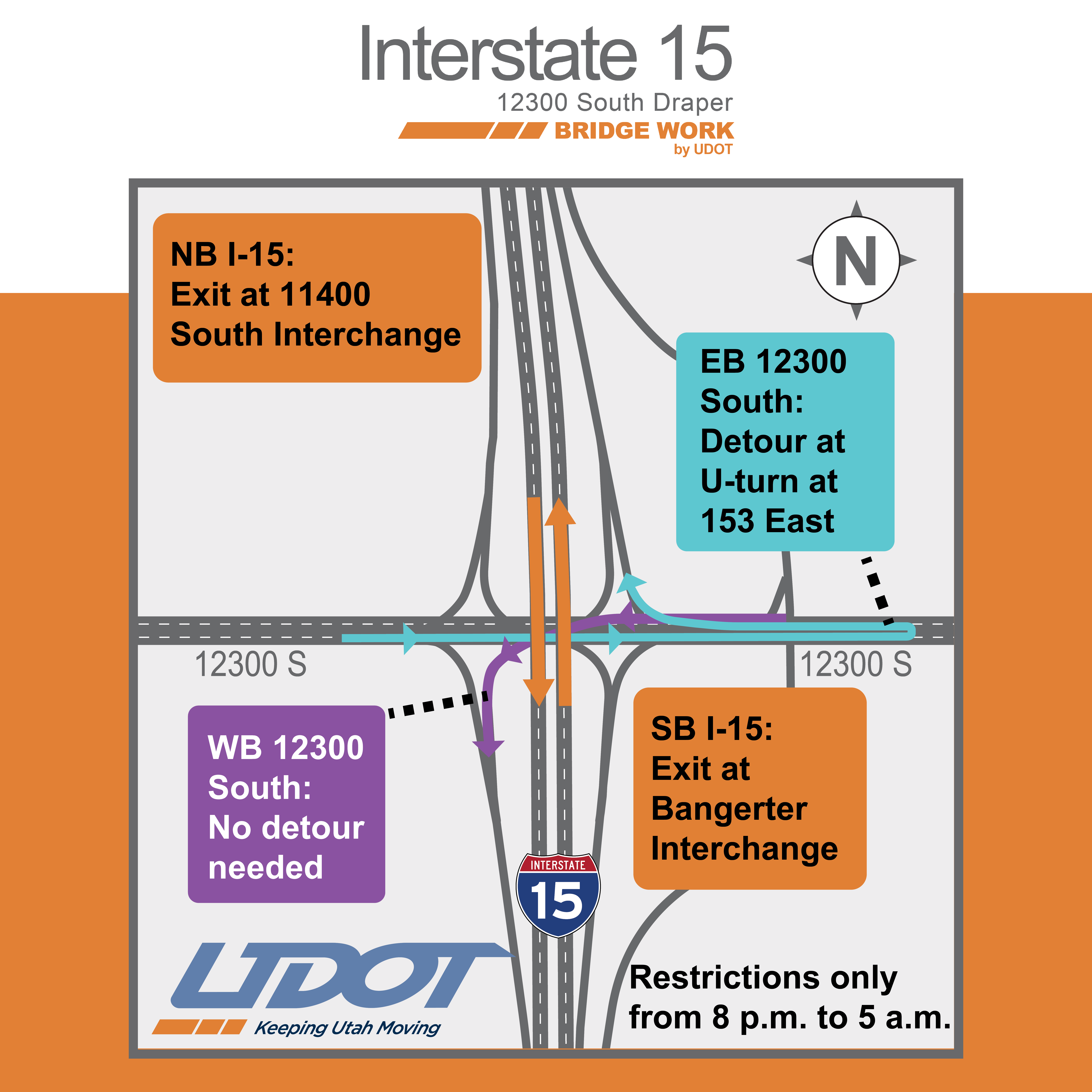Tons of garbage cleaned from Salt Lake homeless encampment
Jun 14, 2018, 6:05 PM | Updated: 9:24 pm
SALT LAKE CITY, Utah – Several police officers, health workers and other volunteers helped clean out homeless camps less than a mile from the Utah State Capitol, where dozens of people have been camping in the foothills north of Salt Lake City.
It’s been going on for years.
There’s been heightened awareness of homeless camps recently, and a community eagerness to help the people and clean up the mess.
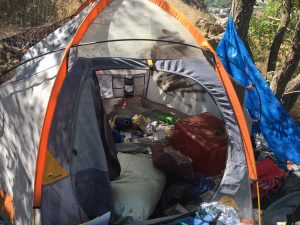 “We have people up here camping that causes a health concern,” said Detective Greg Wilking with the Salt Lake City Police Department. “It’s dangerous for them in the quarry area. There’s the fire danger as well.”
“We have people up here camping that causes a health concern,” said Detective Greg Wilking with the Salt Lake City Police Department. “It’s dangerous for them in the quarry area. There’s the fire danger as well.”
Public camping is not allowed countywide, and the private property owner on Victory Road did not want campers on the property.
Officials from the Salt Lake County Health Department estimated 40 to 50 people have been living in the hills above the quarry where Victory Drive meets Highway 89 since April in about 15 different campsites. As many as 100 people may have been living there this past winter.
“They are all around us,” said Wilking, pointing to the hillsides. “They’ve been here for quite some time.”
After giving the campers plenty of notice, and offering help, crews moved Thursday to clean it all up.
Today we, @slcpd, & many other partners removed thousands of pounds of camping trash that was negatively affecting the environment in SLC’s northern foothills. Campers were given notice to remove their personal belongings, & social workers provided them with resources. #SLCo pic.twitter.com/II5yely9Vh
— Salt Lake Health (@saltlakehealth) June 15, 2018
“They gave us until the end of the day,” said Jeffrey Plante, who was trying to pack up and move.
Plant had a lot of stuff for a man camped in the hills.
“I come out here to explore,” he said.
Plante said he has a house and a son in Bountiful, but, has lived in an elaborate campsite in the hills more than a year. He arrived from Minnesota three years ago.
“I had a job and everything,” he said.
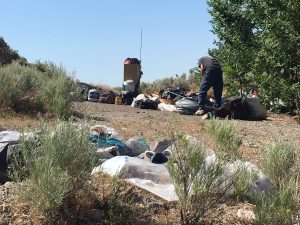 He said he has been called upon to help other campers. He told KSL there were 30 people at the site Wednesday, but they all left, and left most of their stuff behind.
He said he has been called upon to help other campers. He told KSL there were 30 people at the site Wednesday, but they all left, and left most of their stuff behind.
“I don’t think there’s a housing problem,” he said. “I think it’s just that the people don’t want to do anything. It’s too easy [not to work],” he said. “Then they either get drunk, or high and lay around.”
The police and health department workers said they wanted to treat everyone with dignity.
“We did not want to come in and tear up their camps and take all of their possessions,” said Wilking. “We’ve been letting them know, giving them the information that this is coming.”
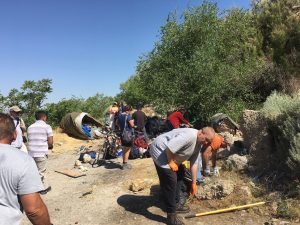 “The work you’re seeing here today is really an operation of compassion,” said Salt Lake City Police Chief Mike Brown. “To reach out and see why they’re up here, what they need, how we can get them back into housing and treatment, whatever the cause may be.”
“The work you’re seeing here today is really an operation of compassion,” said Salt Lake City Police Chief Mike Brown. “To reach out and see why they’re up here, what they need, how we can get them back into housing and treatment, whatever the cause may be.”
Chief Brown said the biggest problems were personal safety, fire safety and sanitation.
“Campers that don’t have access to sewer system or a porta potty, or somewhere to dispose of waste, is a big concern,” said Nicholas Rupp with the Salt Lake County Health Department.
It was a big clean-up. They loaded tons of garbage with bull-dozers and dump trucks.
“There are full-sized mattresses, recliners… we see some industrial waste,” said Rupp.
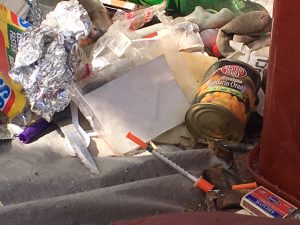 They scooped up car parts, toys and dozens of bikes. They also cleaned up drug paraphernalia and needles left behind by campers that are bio-hazards.
They scooped up car parts, toys and dozens of bikes. They also cleaned up drug paraphernalia and needles left behind by campers that are bio-hazards.
“There’s just everything,” said Rupp. “It essentially looks like a landfill.”
Thursday’s project was not the first of its kind.
“I’ve been on seven clean-ups in the last eight years,” said Rupp.
He said they counted even more people in the area before a similar clean-up in 2011.
“We come in, we address the health concerns, and eventually more campers, and we repeat the cycle,” said Rupp.
Some of the campers, like Richard Smith, have been through many of those cycles.
“A friend brought me up here,” said Smith as he gathered his belongings from a campsite 200 yards up the hillside. “He took off and went to another state. I never did see him again.”
Smith has lived there nine years. Much of that time with his wife, who suffered from health problems and passed away in her sleep.
“She just passed away one night,” he said.
Smith said he wasn’t sure where he was going to sleep Thursday night.
“What I really want is somewhere to live and take care of my business, and not have to worry about anything,” he said.
Smith was asked if he wanted to climb out of homelessness.
“I’m not really sure,” he said.


